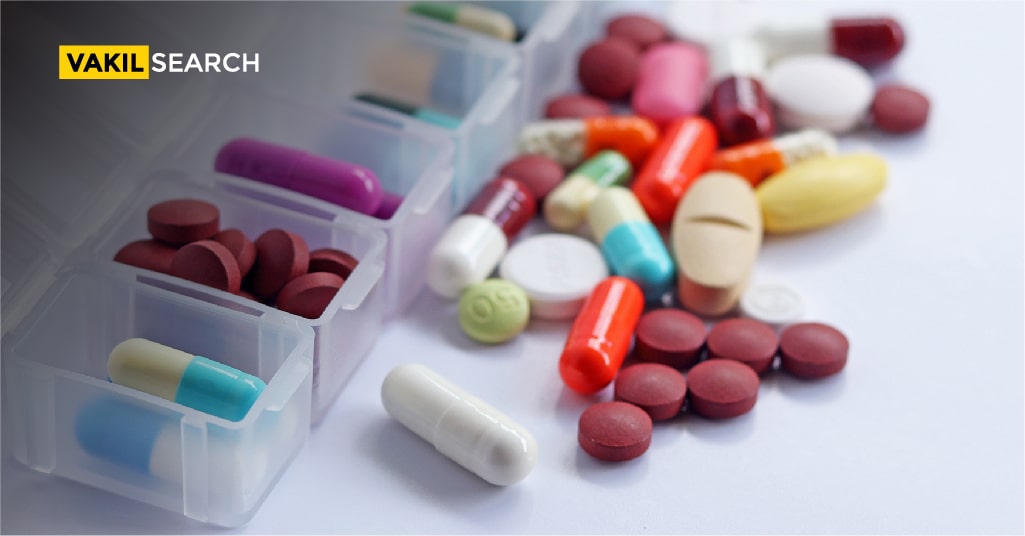We know that companies earn big money by funding R&D projects. But how much do the scientists who put in the actual work make?
The last few years have seen tremendous growth in the global pharmaceutical market, ending last year at a valuation of $1.25 trillion. The industry was valued at $390 billion in 2001. While companies have thrived in the booming market, how much does a scientist make? In this article, we will look at the pharmaceutical patent law or drug patents in India, patents filed by Indian pharma companies, and just how much money they make.
Difference Between Medicines and Drugs
Patent Application India – Medicine is something that aims to prevent, cure, or alleviate a symptom or disease. Therefore, medicines have a benign purpose, and their production has a positive effect on a patient’s health. Additionally, it contains various components, such as active ingredients, additives, and excipients. Meanwhile, a drug may have either a positive or negative impact on a patient’s health. For instance, heroin is a drug, but it isn’t a medicine as it does not cure an ailment. Hence, we can say that all medicines are drugs, but we cannot claim vice versa.
What Is Generic Medicine?
A generic drug works precisely like a brand-name drug but usually costs a lot less. Generic drugs hit the market as soon as a pharmaceutical patent expires. Further, generic medicine costs less as the companies manufacturing them did not spend on R&D. Hence, such drugs help make life-saving medicines more accessible and affordable to the general public. Further, generic drugs share the same safety, efficacy, quality, and performance characteristics as brand-name drugs. Similarly, these similarities or bioequivalence help a generic medicine work the way a brand-name one does.
Do Patents Raise or Lower the Chance of Innovation and Research?
Within the pharmaceutical industry, the patent system goes a long way in encouraging innovation and research. Moreover, the development and testing of drugs is a multi-billion dollar process that need not always result in success. Therefore, by allowing pharma companies exclusive rights to market and sell their drugs, governments give them a commercial incentive. Additionally, this profit incentive via pharmaceutical patents goes a long way in encouraging innovation and research. Hence, patent law requires a delicate balance between innovation and commercial gain.
However, in recent years, pharma companies are trying to maximise their profits by circumventing the law. Many companies now recycle their patent, add minute changes, and refile to extend their patent protection. Additionally, other companies do not innovate themselves but focus only on selling generic drugs. Therefore, the patent system has led to a reduction in innovation in some cases. Additionally, by providing researchers and scientists with IP rights for public disclosure of their invention, the patent law gives an incentive to conduct expensive scientific research. Moreover, in many ways, pharmaceutical patents embed an economic right in an invention, allowing them to drive profit incentives. Therefore, governments need to develop ways to prevent the extension of patent rights and manoeuvres to extend their commercial gains.
What Is the Pharmaceutical Patent Law in India?
The system of patenting came to India in 1856. The most integral part of the pharmaceutical patent law in India is the Patent Act 1970. India is also a member of the Patent Cooperation Treaty, 1970. Additionally, up until 1970, India followed the product patent rules from the Patents and Designs Act 1911. Since 1970, the Indian government has excluded pharmaceutical patents from product patent eligibility.
What Country Produces the Most Pharmaceutical Drugs?
Explore the world’s top pharmaceutical drug exporters and discover how scientists earn from drug patents. Stay informed with the latest global insights
| Sl No | Country | Value (in $ billion) | Contribution to Global Export (%) |
| 1 | Germany | 62.3 | 16.8% |
| 2 | Switzerland | 45.3 | 12.2% |
| 3 | Belgium | 27.8 | 7.5% |
| 4 | France | 25.9 | 7% |
| 5 | United States of America | 22 | 5.9% |
| 6 | Ireland | 21.7 | 5.8% |
| 7 | United Kingdom | 19.7 | 5.3% |
| 8 | Italy | 19.6 | 5.3% |
| 9 | Netherlands | 16.8 | 4.5% |
| 10 | India | 14.8 | 3.8% |
According to the production volume of pharmaceuticals, India is the third-largest producer globally, accounting for 10% of total production volume. Additionally, India stands at 14th place in terms of value, contributing 1.5% to the global market value. Moreover, when it comes to the production of generic drugs, India comes in at number four, making it a pharmaceutical powerhouse. Scientists often earn drug patents, benefiting from the commercial success of their pharmaceutical innovations.
How Much Do Scientists Make From Drug Patents?
A large pharmaceutical company employs Scientists earn from drug patents who invent drugs for extended periods. Additionally, if not, they work as part-time employees via a university or renowned research institutions. Moreover, most of such arrangements agree on the fact that a pharmaceutical patent is the company’s property. Additionally, every successful Drug has several patents behind it, but these are usually owned by the company and not the scientists. The scientists typically get a bonus or a small royalty percentage, but this depends on the agreement and the country to which they belong.
Also, Read:

